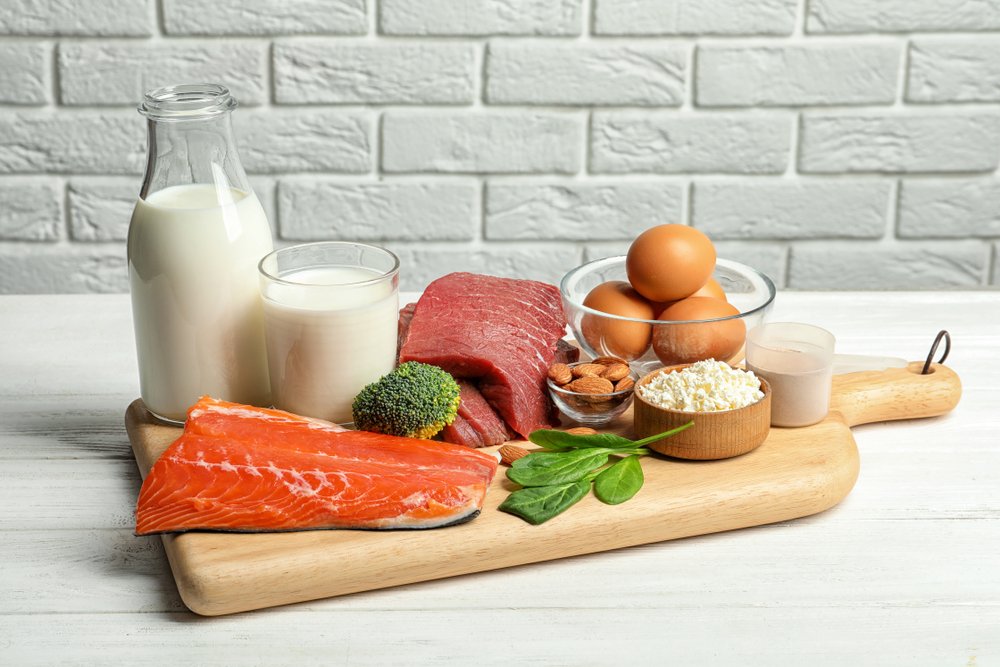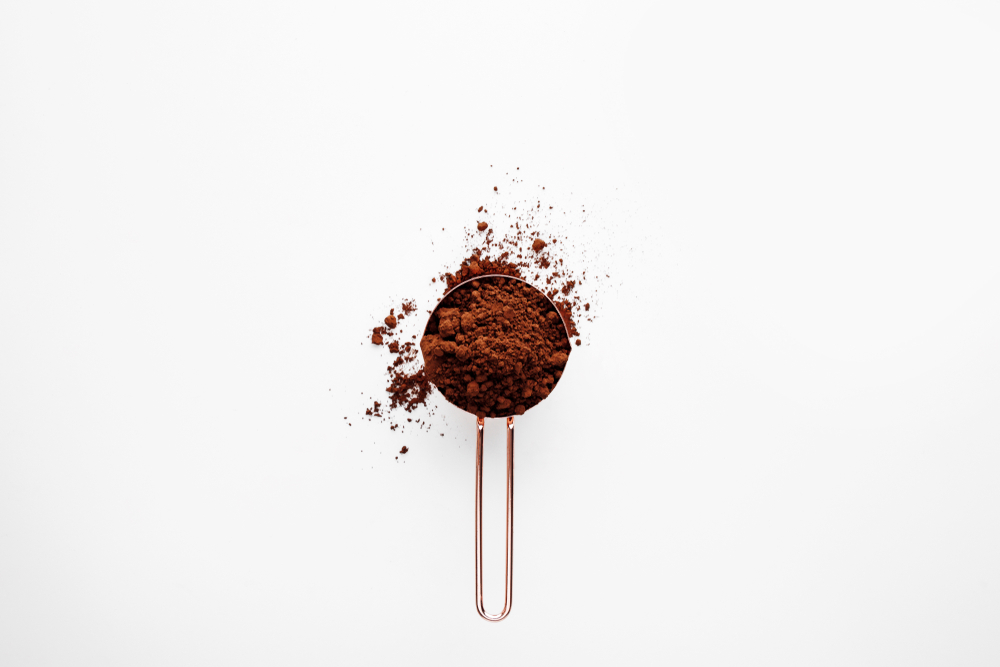
What is Choline and What Are The Benefits?
With veganism ever-growing in popularity, more and more people may be leaving themselves at risk of becoming deficient in essential nutrients. It is estimated that around 5% of the UK now identify as vegan, with many others actively reducing animal products and following predominantly plant-based diets. Meat, dairy, fish and eggs are the best sources of many essential nutrients such as iron, calcium, omega-3 fatty acids and vitamin B12. Whilst these well-known nutrients are often supplemented by vegans to meet the recommended intake; there is a lesser known (but equally important) nutrient, choline, that many people may be overlooking or unaware of.
As a result of this, nutrition experts have expressed their worry that the UK could potentially be heading towards a ‘choline crisis’, primarily due to the rise in people choosing to follow plant-based diets.
In the nutrition world, choline is still a fairly new kid on the block; only being officially recognised as an essential nutrient by the Institute of Medicine in 1998. This being said, choline is an incredibly important nutrient and plays a wide-ranging role in human metabolism; so much so that choline-deficiency is now considered to have an impact on diseases such as liver disease, atherosclerosis (hardening of the arteries) and neurological disorders (2,10).
So, what exactly is choline?
Put simply, choline is an ‘essential’ nutrient which helps transfer signals between our nerve cells and is important for brain development, cell structure, liver function, muscle movement, metabolism and the nervous system. It is neither a vitamin or a mineral; but an organic and water-soluble compound (12).
Whilst our bodies produce choline in the liver; this amount is not sufficient so it therefore must be obtained through our diets or supplement sources.
The British Dietetic Association states that egg yolks, fish, poultry, red meat and milk are the richest sources of choline. However, herbivores needn’t worry as it is possible to gain a sufficient amount of choline from a plant-based diet (8,11).
The recommended amount of choline is currently stated by The Food and Nutrition Board of the National Institute of Medicine as 550mg per day for men and 425mg for women. The average UK diet supplies just 200-600mg so it is recommended to ensure you are hitting the recommended amount to gain the full benefits (3, 4, 7).
If you’re following a plant-based diet and concerned about choline deficiency, ensure you hit the recommended levels by including foods such as nuts, seeds, beans, tofu, wholegrains, quinoa, fruit, mushrooms, and cruciferous vegetables such as broccoli or cauliflower (8).
Choline is particularly important during pregnancy as choline deficiency may increase the risk of unborn babies developing neural tube defects. One study found that a higher choline intake around the time of conception was linked to a lower risk of neural tube defects. Low choline intake during pregnancy may also raise the risk of other complications such as premature birth, preeclampsia and low birth weight. It is therefore recommended that pregnant women (or those trying to conceive) ensure they are consuming sufficient amounts of choline (5).
Choline deficiency is also linked to a higher risk of liver and/or muscle damage. However, this damage generally reduced or disappeared entirely once choline was consumed in adequate amounts. Whilst many people do not consume sufficient amounts of choline in their diets; significant deficiency is quite rare (2, 5)
Choline has many health benefits and plays a key role in several body processes, including:
- Supporting a healthy nervous system – Choline is required to make acetylcholine (an important neurotransmitter). Acetylcholine is involved in processes such as muscle movement, memory, regulating heartbeat and many other basic functions (1, 9)
- Cell structure – Choline is required to make fats that support the structural integrity of cell membranes (12).
- Cell messaging – Choline is involved in the production of compounds that act as cell messengers, transporting signals and activating receptors (9).
- Fat transport and metabolism – Choline is vital for creating a substance required for removing cholesterol from the liver. Insufficient choline may result in fat and cholesterol build up in your liver (6).
- DNA synthesis – Choline alongside other vitamins, such as B12 and folate, assist with a process that’s key for DNA synthesis (10, 12).
What are the best food sources of choline?
Some examples of foods rich in choline include:
- Eggs – 1 large egg contains around 20–25% of your daily requirement
- Beef – particularly rich in the liver and kidneys
- Chicken – especially in in the liver again… Pâte anybody?
- Milk
- Salmon
- Cod
- Tofu
- Broccoli
- Cauliflower
- Mushrooms
What is the best type of choline, food or supplement?
Choline may also be taken as a supplement in pill or powder form. Popular forms include phosphatidylcholine, choline chloride, CDP-choline, alpha-GPC and betaine.
A lot of ‘brain-boosting’ nootropic supplements also contain choline but it is worth checking the quantity per serving if the choline content is your main motivation to purchase. Many food sources are rich in choline as listed above, it is therefore easy to hit the recommended amounts through diet with minimal effort.
The Take Home:
Consuming sufficient choline through diet has been shown to be neuroprotective over time (protects your brain health and reduce the risk of neurodegenerative disease such as Alzheimer’s disease) and promote improved brain function. Several studies have also shown that choline may improve memory, assist with brain development and treat mental health conditions such as anxiety (9).
A diet containing sufficient choline has also been shown to reduce risk of liver disease, one study of people with non-alcoholic fatty liver disease found that those who had diets low in choline had more severe symptoms of the disease. Choline intake is also linked to a reduced risk of heart disease. There is mixed evidence reporting the various benefits of choline, however there is no doubt ensuring you meet the recommended amount can benefit your body and brain. While ‘brain-boosting’ supplements are growing in popularity, you can easily meet the required levels of choline through your diet.
So long as you eat a diet containing some of the foods listed above, it is highly unlikely you will be deficient in choline. However, there is no harm in looking at your diet to assess where you are getting your choline intake from, particularly if you follow a plant-based diet. If you are a picky-eating vegan and concerned your diet may be too restrictive to gain the recommended amounts, try adding a supplement to your diet to top up your levels.
References:
- Bidulescu A, Chambless LE, Siega-Riz AM, Zeisel SH, Heiss G. Usual choline and betaine dietary intake and incident coronary heart disease: the Atherosclerosis Risk in Communities (ARIC) study. BMC Cardiovasc Disord 2007;7:20.
- Caballero B, Cousins RJ, Tucker KL, et al. Zeisel SH. Choline. In:, eds. Modern Nutrition in Health and Disease, 11th edn Baltimore: MD, USA, 2014: 416–26.
- da Costa, Kerry-Ann & Corbin, Karen & Niculescu, Mihai & Galanko, Joseph & Zeisel, Steven. (2014). Identification of new genetic polymorphisms that alter the dietary requirement for choline and vary in their distribution across ethnic and racial groups. FASEB journal : official publication of the Federation of American Societies for Experimental Biology. 28. 10.1096/fj.14-249557.
- Fischer, Leslie & da Costa, Kerry-Ann & Kwock, Lester & Galanko, Joseph & Zeisel, Steven. (2010). Dietary choline requirements of women: Effects of estrogen and genetic variation. The American journal of clinical nutrition. 92. 1113-9. 10.3945/ajcn.2010.30064.
- Griffith, W. & Wade, Nikisha. (2019). Some Effects of Low Choline Diets. Experimental Biology and Medicine. 41. 188-1992. 10.3181/00379727-41-10614P.
- Guerrerio AL, Colvin RM, Schwartz AK, Molleston JP, Murray KF, Diehl A, et al. Choline intake in a large cohort of patients with nonalcoholic fatty liver disease. Am J Clin Nutr 2012;95:892-900.
- Institute of Medicine. Food and Nutrition Board. Dietary Reference Intakes: Thiamin, Riboflavin, Niacin, Vitamin B6, Folate, Vitamin B12, Pantothenic Acid, Biotin, and Choline. Washington, DC: National Academy Press; 1998.
- Nutritiondata.self.com. (2019). Foods highest in Choline. [online] Available at: https://nutritiondata.self.com/foods-000144000000000000000-7w.html?
- Poly, Coreyann & Massaro, Joseph & Seshadri, Sudha & Wolf, Philip & Cho, Eunyoung & Krall, Elizabeth & Jacques, Paul & Au, Rhoda. (2011). The relation of dietary choline to cognitive performance and white-matter hyperintensity in the Framingham Offspring Cohort. The American journal of clinical nutrition. 94. 1584-91. 10.3945/ajcn.110.008938.
- Ueland, Per. (2010). Choline and betaine in health and disease. Journal of inherited metabolic disease. 34. 3-15. 10.1007/s10545-010-9088-4.
- Wilson, J. & Lorenz, K. (1979). Biotin and choline in foods—Nutritional importance and methods of analysis: A review. Food Chemistry. 4. 115-129. 10.1016/0308-8146(79)90036-0.
- Zeisel, Steven & da Costa, Kerry-Ann. (2009). Choline: An Essential Nutrient for Public Health. Nutrition reviews. 67. 615-23. 10.1111/j.1753-4887.2009.00246.x.






No Comments yet!